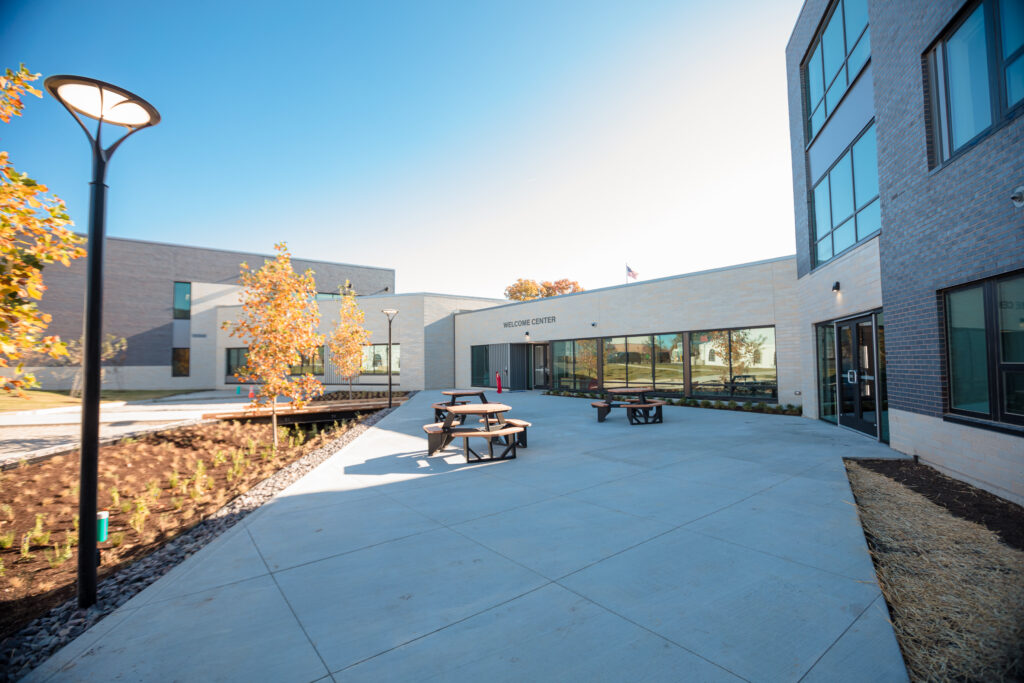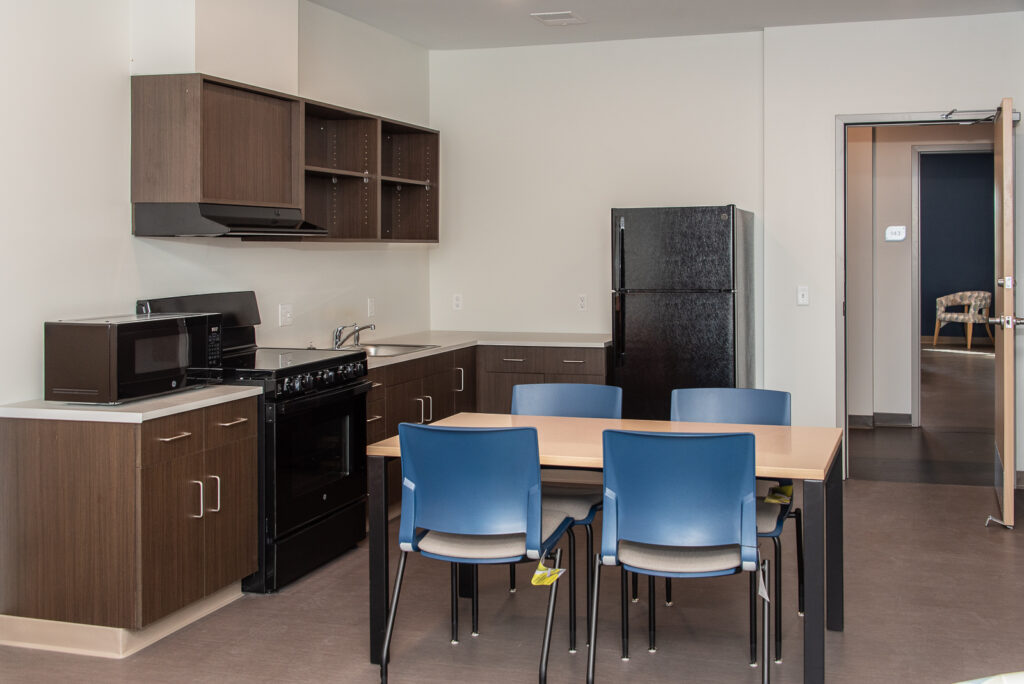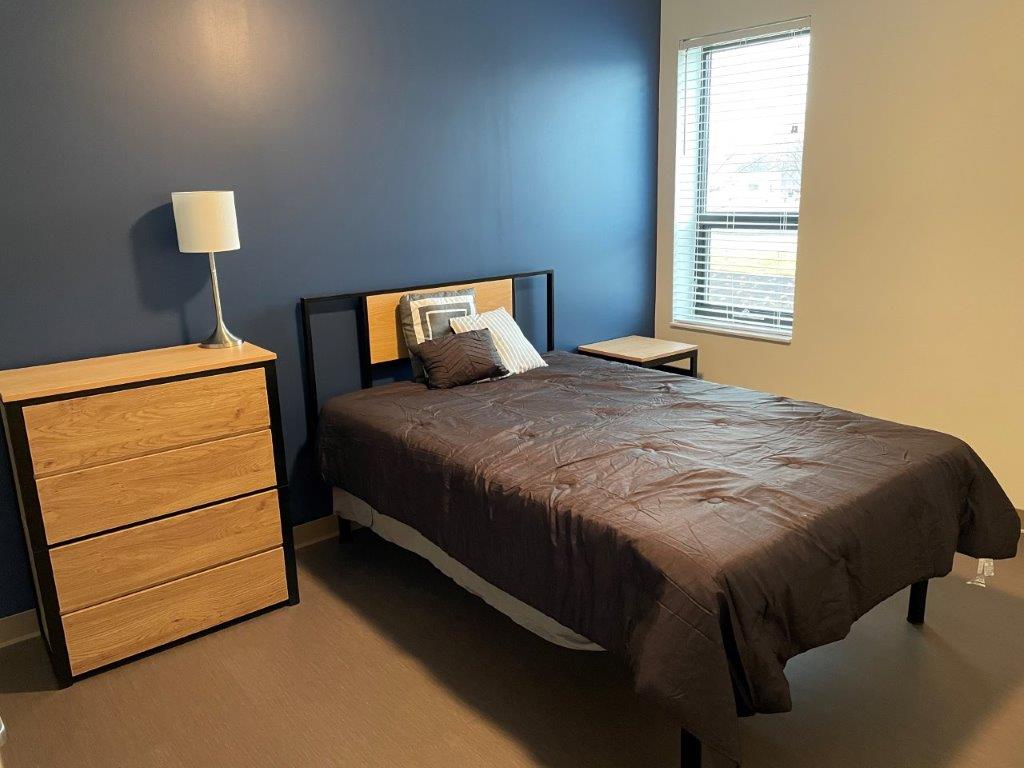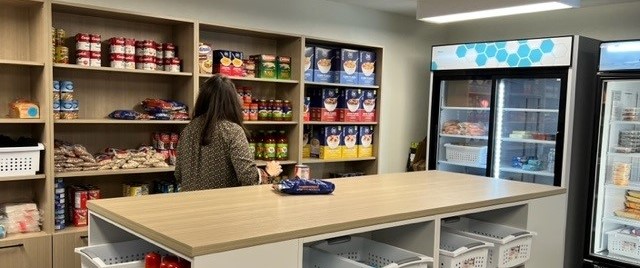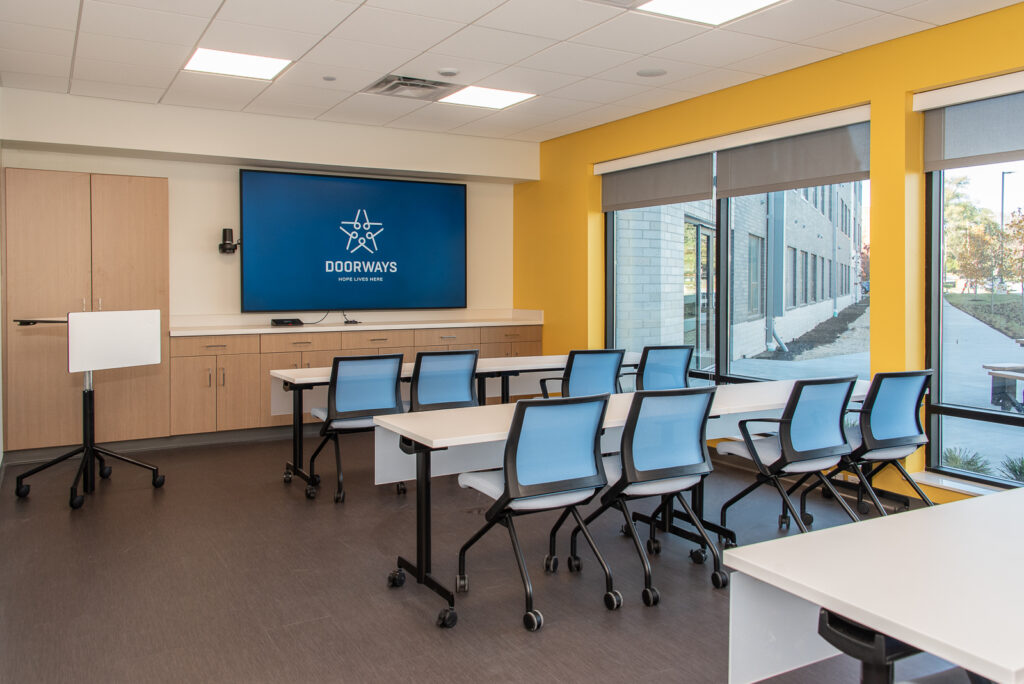Who
Historically, once housed with DOORWAYS, client stabilization begins with referrals to supportive services at other provider offices scattered throughout the city. With growing depth and breadth of need among clients–including increased mental health and substance use challenges–many people were unable to navigate the barriers to care (scheduling, transportation, weather, etc.). Continued instability may lead to lapses in medical care, delaying viral suppression, which is vital for improved individual health as well as for stopping the spread of HIV as undetectable = untransmittable.
In response, DOORWAYS launched a capital campaign to build a new campus offering 360 degrees of comprehensive supportive services co-located with 50 new apartments that offer flexible arrangements to meet short-term and long-term housing needs–thus, Comprehensive Flexible Housing (CFH). While the supportive services are available to all DOORWAYS housing clients, CFH clients reside in Allen House on the new campus, removing access and navigation barriers.
What
CFH clients are able to remain in Allen House throughout their stabilization process. Onsite services combine to build the environments impacting improved health and quality of life–the social determinants of health (SDOH): housing, hunger, health, income, employment, education, community, etc.
The SDOH are nurtured with onsite resources such as:
- An onsite provisions pantry and individualized support from FOOD OUTREACH to address food insecurity.
- Assistance with coordination of and transportation to medical visits, which are essential for managing chronic conditions associated with poverty and adhering to an HIV medication regimen to achieve undetectable status that stops forward transmission of the HIV virus.
- Individual and group behavioral health counseling plus 24-hour crisis intervention care.
- Individualized employment/career guidance enhanced with job training resources.
- A multi-media classroom for programs to fill gaps in learning created by a legacy of poverty. This can include formal education as well as skill-development, such as managing the instrumental activities of daily living such as budgeting on a limited income, maintaining an apartment, nutritious cooking, and so on.
- A community room and resident social events to encourage building a group of friends available as a support system and safety net.
- Pharmacy delivery services with the expectation to open a retail pharmacy on the northside of the campus.
- Private rooms where other agencies serving people living with HIV may meet with their clients, such as a Ryan White medical case manager.
Success
Residents are able to remain in Allen House without the pressure of a housing expiration date. Their success is measured by progress in strengthening the SDOH in general and maintaining viral suppression in particular. By advancing these areas, Allen House residents will advance to more independent living opportunities with increased stability.
DOORWAYS remains as a safety net through the subsidies program, ready to provide temporary rent/utility relief when clients experience financial difficulties.
If you are interested in assistance, please click here to go to the CLIENT PROCESS page or call the program director’s office at 314-328-2657 during office hours (Monday-Friday 8:30 a.m. to 5:00 p.m.).
new apartments offering flexible housing, with comprehensive supportive services available onsite, became available October 2022 with the opening of the new DOORWAYS Jefferson Avenue Campus.
